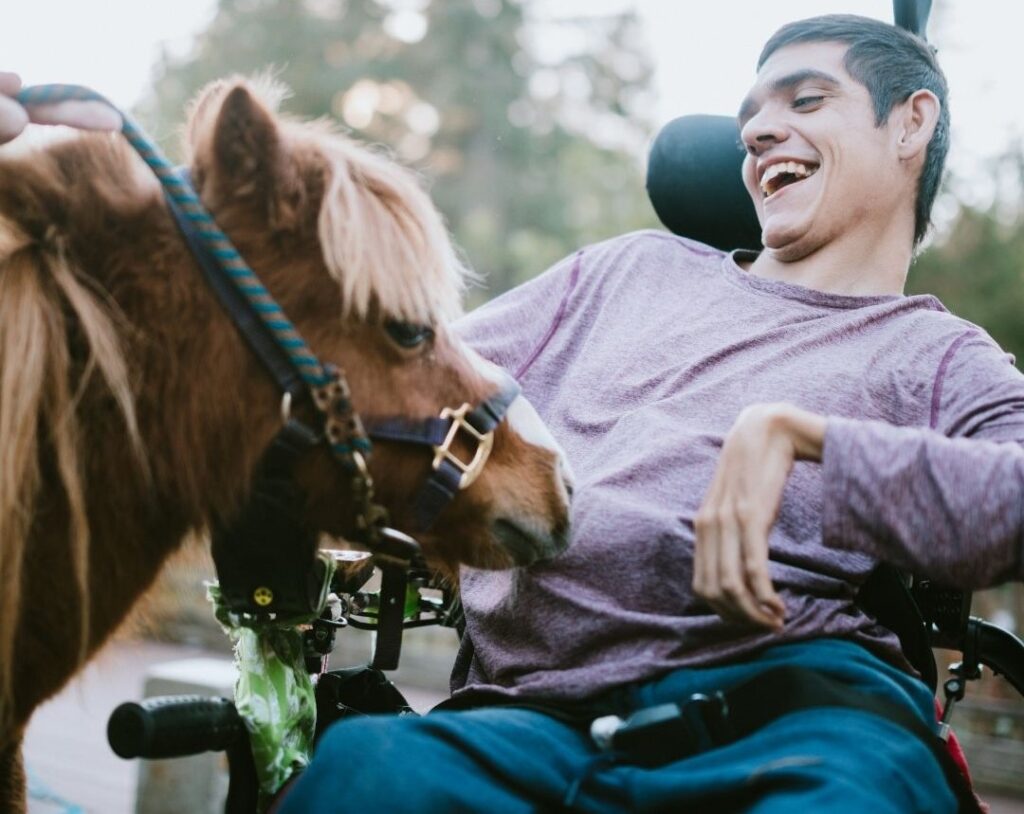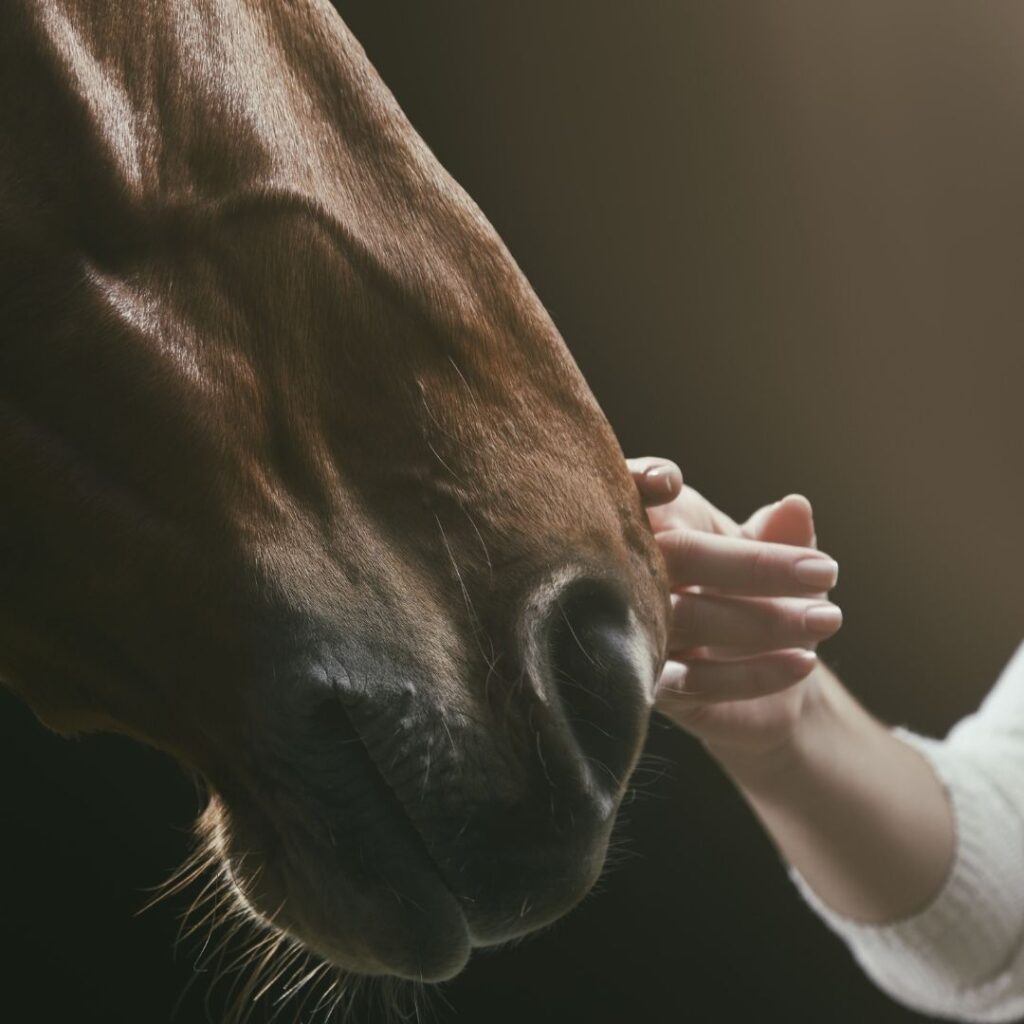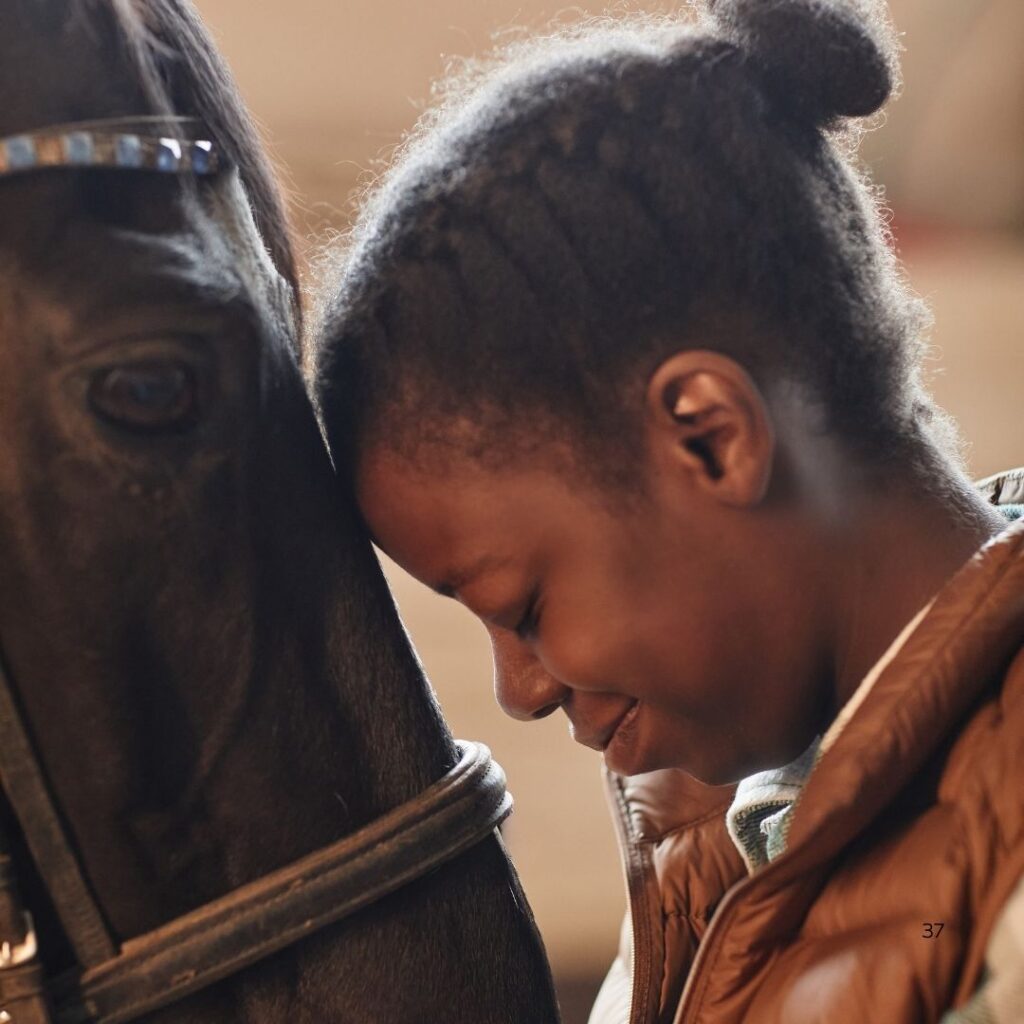
Throughout history, horses have played a profound role in human healing, providing physical, emotional, and psychological benefits. Their ability to connect with people has been recognized for centuries, dating back to ancient Greece. Over time, this bond has evolved into structured equine-assisted therapy programs, offering support to individuals facing physical and mental health challenges. But beyond therapy, there is something deeply sacred (human) about the relationship between horses and people—a connection built on trust, empathy, and understanding.
One of the most well-known forms of equine therapy is hippotherapy, which utilizes the movement of the horse to improve balance, coordination, and strength in individuals with disabilities. This practice is widely used in rehabilitation centers and hospitals for patients with cerebral palsy, multiple sclerosis, down syndrome, autism and spinal cord injuries among many others. The rhythmic motion of the horse mimics the human gait, helping riders develop muscle control and stability in a way that traditional therapy cannot replicate. More than just a treatment, hippotherapy fosters a connection between horse and rider, allowing individuals to experience not only physical growth but also emotional connection and confidence.
Beyond physical rehabilitation, horses have been instrumental in emotional healing. Equine-assisted psychotherapy (EAP) helps individuals struggling with PTSD, anxiety, and depression. The presence of a horse provides a non-judgmental and calming environment, allowing patients to build trust, gain confidence, and process emotions in a unique and effective way. Many veterans and trauma survivors have found solace through working with horses, as the connection fosters emotional resilience and personal growth. Horses, in their intuitive nature, seem to sense human emotions, responding with an understanding that is almost human-like. They mirror our feelings, offering silent support in times of need.
All of these experiences not only provide valuable skills but also help people build self-worth and emotional regulation. The deep connection formed through working
with these horses often gives inmates a sense of purpose and belonging, something many have lacked in their lives.
From ancient civilizations to modern therapy programs, the healing power of horses continues to change lives. Whether in hospitals, therapy centers, or correctional facilities, these majestic animals provide companionship, physical support, and emotional healing. As equestrians, no matter in what way, we pour our hearts into our horses, trusting them in ways that go beyond words. They become our partners, our safe haven, and the connection we crave after even the hardest, longest days. There’s a healing that happens just by being in their presence—the quiet understanding in their eyes, the steady rhythm of their breath, the way they ground us when the world feels overwhelming. They don’t just carry us in the arena; they carry our hopes, our struggles, and our unspoken emotion, reminding us that we will always have a place with them that offers infinite support and an unspoken connection.

